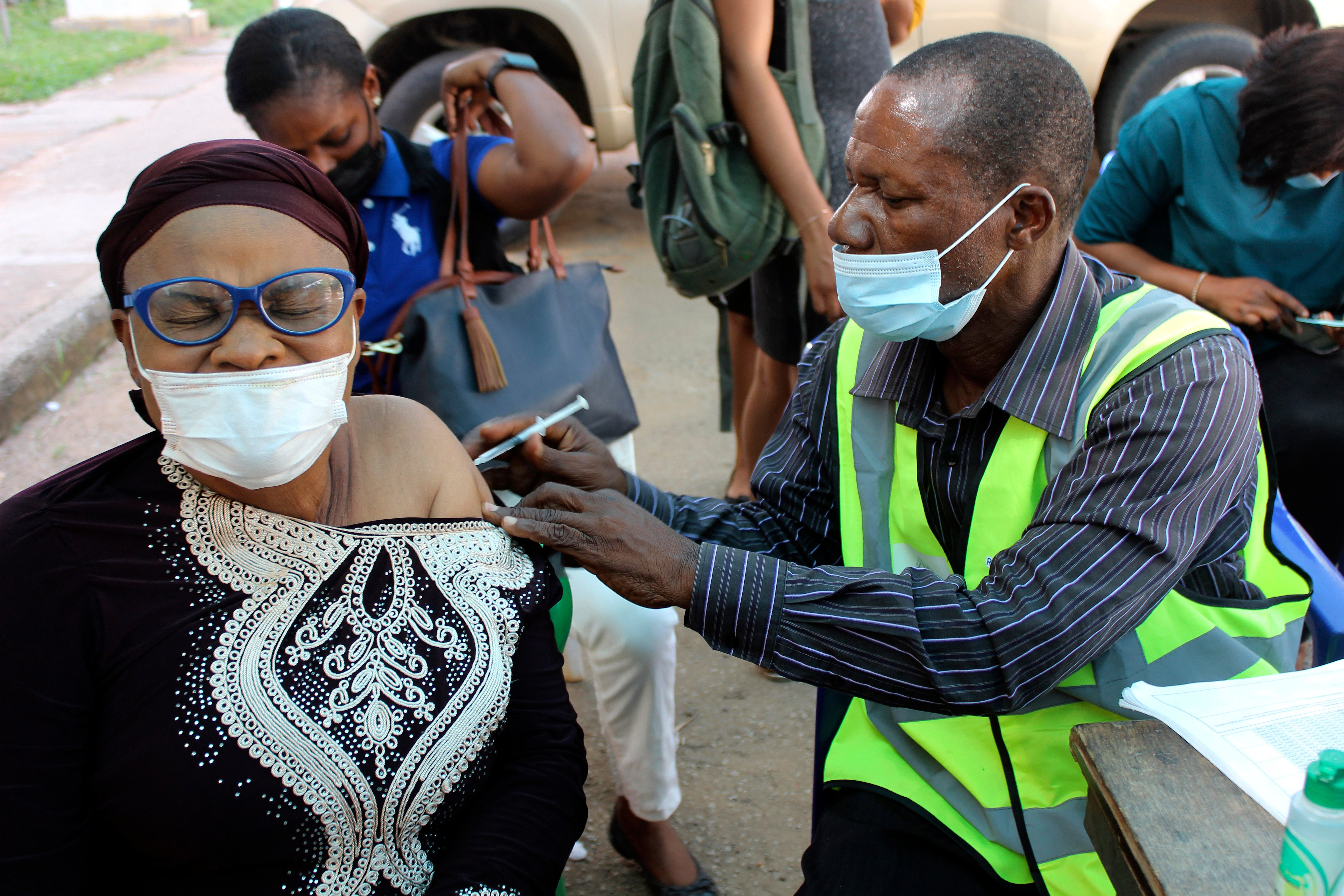Nigeria slams UK's 'discriminatory' travel ban over omicron
A Nigerian official has criticized a travel ban imposed on the West African nation by the British government amid fears about the new omicron variant as “punitive, indefensible and discriminatory.”

Your support helps us to tell the story
From reproductive rights to climate change to Big Tech, The Independent is on the ground when the story is developing. Whether it's investigating the financials of Elon Musk's pro-Trump PAC or producing our latest documentary, 'The A Word', which shines a light on the American women fighting for reproductive rights, we know how important it is to parse out the facts from the messaging.
At such a critical moment in US history, we need reporters on the ground. Your donation allows us to keep sending journalists to speak to both sides of the story.
The Independent is trusted by Americans across the entire political spectrum. And unlike many other quality news outlets, we choose not to lock Americans out of our reporting and analysis with paywalls. We believe quality journalism should be available to everyone, paid for by those who can afford it.
Your support makes all the difference.A Nigerian official on Monday criticized a travel ban imposed on the West African nation by the British government amid fears about the new omicron coronavirus variant as “punitive, indefensible and discriminatory.”
U.K. Health Secretary Sajid Javid on Saturday added Nigeria to the U.K.’s travel “red list,” which means that arrivals from there will be banned except for U.K. and Irish residents. He said there was a “significant number” of omicron cases linked to travel with Nigeria, with 27 cases recorded in England.
But Nigerian authorities say they have not reported any new omicron cases in the country since announcing on Dec. 1 that they had detected three cases in travelers who arrived from South Africa
The British travel ban is “not driven by science” and is “unjust, unfair, punitive, indefensible and discriminatory,” Nigeria’s Information Minister Lai Mohammed told reporters.
“Instead of these reflex responses that are driven by fear, rather than science. Why can’t the world take a serious look at the issue of access to vaccines, and ensure that it is based on the principles grounded in the right of every human to enjoy the highest attainable standard of health, without discrimination on the basis of race, religion, political belief, economic or any other social condition?” Mohammed said.
Nigeria, Africa's most populous country, is not considering imposing travel bans from any country now, Minister of Health Osagie Ehanire told The Associated Press. Instead, it is focusing on ramping up surveillance and testing as it aims to "balance saving lives and saving livelihoods.”
Only about 3.78 million of Nigeria's 206 million people have been fully vaccinated so far. But Enahire said the situation in the country is under control, adding that the government is able to access 100 million doses. Last week, Nigeria also approved boosters for the fully vaccinated.
New confirmed cases have remained low since the first cases of the new variant were detected, averaging 80 daily.
Ehanire called a travel ban “an extreme step” that Nigerian authorities are not going to take now "because we know that the virus somehow gets around and we do all we can to make sure that we reduce the rate at which carriers enter our country.”
Nigeria requires inbound travelers to take a COVID-19 PCR test within 48 hours of their departure, take another test on the second day after arrival and self-isolate for seven days, after which a third test is done if not fully vaccinated.
A mass vaccination program in Nigeria is gradually gathering momentum as the nation aims to fully vaccinate 55 million people in the next two months. The health minister said Nigeria also is seeking to produce COVID-19 vaccines locally funded by a combination of government money and investors.
“We are ready, we are willing and we also know that Nigeria generally will consider the needs of the whole of West Africa when you are making an investment like this,” he said.
___
Follow all AP stories on the pandemic at https://apnews.com/hub/coronavirus-pandemic.